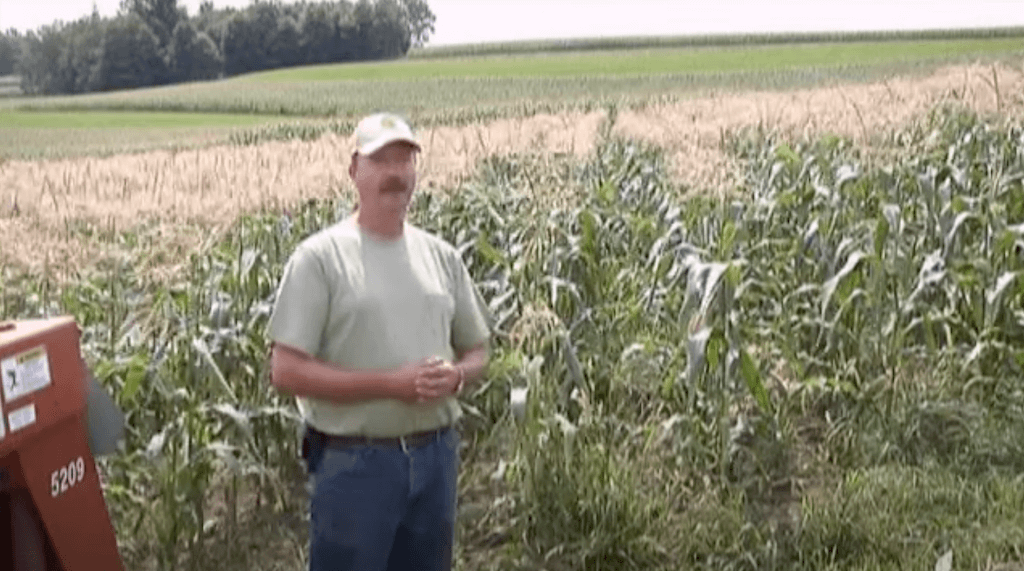Manure Management
In October of 2011, the PA Department of Environmental Protection released new regulations for all farms of any size that produce or apply manure. These regulations require everyone to maintain records on manure and animal management on operations. These regulations, under Chapter 91, help keep Pennsylvania's streams clean.
The regulations apply to any size farm, and address a variety of different situations, including: land application of imported manure, composted manure, and pastured animals.
The regulations require that farmers devise and follow a plan specific for their situation. The Manure Management Manual is available by the DEP to help guide farmers in producing their own plan. The Berks County Conservation District is available to help farmers develop the plan.
The Department of Environmental Protection has made parts of the plan available online. Berks County Conservation District will also help you construct your plans. Click here for Manure Management Plan Resources and Documents.
Broadcasting manure is still the most common method of spreading manure. Some disadvantages are large potential losses of nitrogen by ammonia volatilization and odor. Tilling in manure reduces these problems but is detrimental because it exposes the soil to erosion and hurts soil health. Low disturbance manure injection is considered consistent with no-till systems. It can help save nitrogen to reduce fertilizer applications, and reduce odor nuisance for neighbors. Researchers report at least a 60% reduction in odor compared with surface broadcasting. But how does manure injection work in practice? Click here for Testimonials About Manure Injection (Source: Penn State Extension 9-1-2015)
The following video, provided by Blair County Conservation District, explain the new regulations:

Winter spreading of manure
Tips for Making Sure You Are Covered this Winter
By Dr. Douglas Beegle, Penn State. Posted: December 2, 2015
Quick tips for late fall, winter, and early spring manure application on the farm. Some common sense application techniques to keep manure spreaders on the straight and narrow.
Winter manure application is probably the most sensitive nutrient management issue that farmers face. Many outside of agriculture feel that it should be completely banned. We all know that winter is not the best time to apply manure and should be our last choice. But the reality is that on many of our farms there are no other practical options. Also, unfortunately, sometimes we do not plan adequately for the storage getting full before the conditions are fit for manure applications, which forces us to do some spreading when we probably shouldn’t. If late fall, winter, or early spring manure applications are necessary, we really need to bend over backwards to do the best possible job of applying this manure if we want to continue to have this as an option. This means making an extra effort to try to select the best fields and timing of application to minimize the potential for loss, and thus maximize the nutrients that will be available for crop uptake. Also, we need to be aware of public perception and think about how people might view a winter application on a given field. This is largely common sense but there are regulations that apply to all manure application in Pennsylvania:
- Select fields with cover crops or at least good residue
* Regulations require a cover crop or at least 25% residue for winter spreading - Stay as far away from water as practical
* Regulations require staying 100 ft from water in the winter - Select the most level fields available and especially avoid significant slopes
* Regulations prohibit manure application on slopes greater than 15% - Avoid spreading high rates of manure in the winter
* Regulations limit winter manure applications to the following unless you have an approved nutrient management plan- No more than 5000 gal/A of liquid manure
- No more than 20 ton/A of dry non-poultry manure
- No more than 3 tons/A poultry manure
- Avoid areas in fields were concentrated water flow is likely
- Avoid poorly drained fields
- Don’t spread on snow unless it is unavoidable
- Try to avoid spreading when rain or melting conditions are expected.
- Stay away from roads and don’t spread in road ditches
- For daily spreading, mark where you stop spreading in case fresh snow covers up the previous application to avoid skips and overlaps
Note that from a regulatory point of view, winter is defined as:
- December 15 through February 28;
- OR anytime the ground is frozen at least 4 inches;
- OR anytime the ground is snow covered.
While the regulations listed above are specific to winter, these management guidelines are still very applicable to early spring conditions that might not meet the legal definition of winter. All farms that apply manure in Pennsylvania must have a manure management plan. High density farms (CAOs) and farms with large numbers of animals (CAFOs) must have an approved Nutrient Management Plan. All other farms that apply manure must have a Manure Management Plan (MMP) based on the DEP Manure Management Manual. An MMP that meets these regulations includes special considerations for winter application of manure that are included in the list of management practices above.
